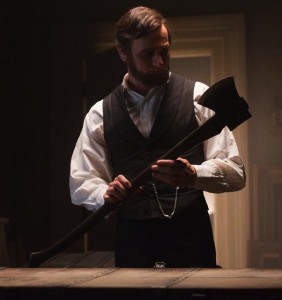Rise
By the time you read this, the actual movie called The Dark Knight Rises will have been completely eclipsed in the popular imagination by the shooting at a July 20th midnight screening of the movie in Aurora, Colorado, in which 12 people were killed and 58 wounded. James Holmes, the 24-year-old man who (allegedly) committed the crime had died his hair red, bought a ticket, entered the theater, put on a gas mask and a bullet-proof vest, set off some sort of gas bomb, and then, with an assault rifle and a shotgun and a revolver, opened fire into the audience as they were just sitting down to see the most anticipated film of the year. Rises is the sequel to The Dark Knight, the movie in which Heath Ledger’s performance as the Joker was, perhaps, the greatest depiction of evil in modern film. When Holmes was arrested outside the theater, he told the police that he was the Joker. The picture of Holmes that has appeared in most stories about the San Diego native is that of a young man smiling as if he has just won the lottery or as if he were deranged. It seems the latter is most likely true.
What Holmes did in Aurora is something that the Joker would have done. It had no purpose other than to create chaos, fear, and despair. It had no meaning. It has no meaning. Yes, there are actions that could have prevented the massacre. Obviously, you can blame the National Rifle Association for spending hundreds of millions of dollars fighting gun control laws that could have prevented Holmes from legally buying an assault rifle. And less obviously, better, cheaper, and more aggressive mental health services could have been able to help and stop Holmes from becoming the monster he has become. But these are political arguments and policy problems. What Holmes and the Joker did in reality and fiction, respectively, were not political or even immoral. Their evil is amoral; it does not have righteousness or belief behind it. It is evil for evil’s sake.
The horrible irony of the Aurora massacre is that Christopher Nolan’s trilogy of Batman movies that started with Batman Begins and ends with Rises is about this kind of evil and the moral bargains that good people must make to fight and beat it. Rises takes place seven years after the action in The Dark Knight, and Gotham City is crime free because of the Dent Law, passed after Batman (Christian Bale) supposedly murdered the supposedly heroic district attorney Harvey Dent. In reality, Dent was the psychotic murderer Two-Face and Batman and Commissioner Gordon (Gary Oldman) decided to allow the city to valorize Dent at the Batman’s expense to give the populace hope. Batman has disappeared, and his alter ego Bruce Wayne has taken Howard Hughes-like to the east wing of his mansion. Batman and Gordon’s cynical pact comes back to haunt them and Gotham when a masked mercenary called Bane (Tom Hardy) descends on the city with an army and an insane plan to destroy it with nuclear device designed by Bruce Wayne’s company. Involved in the overstuffed and intricate plot are a talented cat burglar (Anne Hathaway), a beautiful and accented investor in Wayne Enterprises (Marion Cotillard), and a junior detective in the Gotham Police Department (Joseph Gordon-Levitt). Of course, Alfred (Michael Caine), Wayne’s butler, is around as well.
No one could hope that Rises could ever be as good as The Dark Knight, which is inarguably the best superhero movie ever made. The main problem with the movie is that Nolan and his brother Jonathan forced the Rises screenplay to tie up the plot threads ofThe Dark Knight and Batman Begins into a perfect and bleak bow. This creates too many contrived revelatory moments, particularly during the film’s third act. However, I honestly didn’t care that I was suffering too many plot twists because I was watching, after all, a comic book movie. I didn’t care that Hathaway wasn’t as a good a Catwoman as Michelle Pfeiffer was in Tim Burton’s Batman Returns, because Hathaway was sly, slinky, and funny. I was only bothered a little that Tom Hardy’s voice was occasionally muffled by Bane’s mask because, when he could be heard, his speeches were so lyrical and so cynical they gave me chills. And whatever the script problems, watching an epic action film directed by Christopher Nolan and edited by Lee Smith means that chase scenes, fist fights, seemingly impossible stunts, and complex dramatic scenes are executed with the precision needed to be both utterly clear and actually thrilling. I was so excited by the last hour of the film that for an hour afterward, my heart was still racing.
While I have avoided reading other reviews of The Dark Knight Rises, I haven’t been able escape the commentary on Facebook and Twitter from the small but vocal minority who didn’t like the movie. And I wasn’t able to escape the brouhaha about the critics who posted early, negative reviews and received death threats from Batman fans. While I take movies seriously for their cultural, political, and economic power, using an opinion about a movie as an excuse for actual or rhetorical violence is senseless to me. This is especially so when the movie is a meditation on the horror that senseless violence creates.
The Dark Knight Rises
Directed by Christopher Nolan
Written by Jonathan Nolan and Christopher Nolan
Starring Christian Bale, Tom Hardy, and Anne Hathaway
Rated PG-13
At your local multiplex



